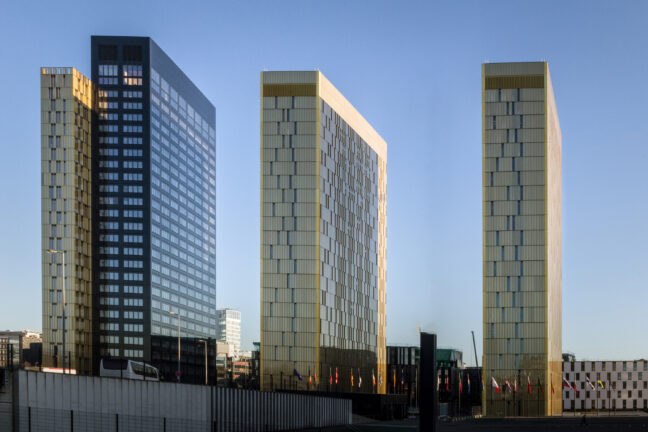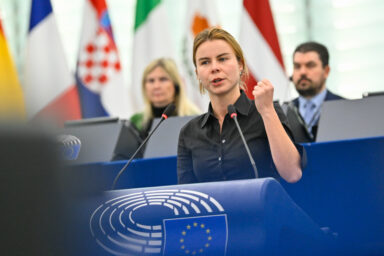The European Parliament has launched a legal challenge against the Council of the EU over its exclusion from talks on the €150 billion SAFE defence-loan scheme, escalating a bitter dispute about democratic accountability in crisis policymaking.
On 20 August, the Parliament filed a lawsuit at the Court of Justice seeking to annul the SAFE regulation, which bypassed MEPs using an emergency clause. “Parliament brings a case on grounds of inadequate legal basis,” its press service told EU Perspectives.
The SAFE programme, proposed by European Commission President Ursula von der Leyen in March, aims to boost EU arms production by offering cheap loans to member states. Eighteen countries have requested loans totalling at least €12bn, with Poland’s €45bn bid topping the list.
Procedure over policy
The Parliament’s ire centres on procedure, not policy. Brussels activated Article 122 of the EU treaties—a provision meant for crises like the covid-19 pandemic—to fast-track SAFE without parliamentary scrutiny. MEPs approved the scheme’s goals but decried the legal shortcut. “SAFE as an instrument has the full support of Parliament. This is not about content. It is about the legal basis that was chosen, which undermines democratic legitimacy,” the press service stressed.
Article 122 lets the Council adopt measures “without delay” in severe crises, sidelining the Parliament. Ms von der Leyen called SAFE “an exceptional and temporary response to an urgent and existential challenge”, defending its use as “fully justified”.
You might be interested
MEPs disagree. “The use of Article 122 for SAFE was procedurally incorrect and simply unnecessary,” the press service said. “There is no Parliament in the world that would accept that.” The lawsuit (seeking annulment of the legislation, which technically means suing the Council of the EU) asks the court to void SAFE. However, in a nod to its strategic importance, MEPs also ask to keep SAFE’s effects in place until a replacement emerges.
Arms race by numbers
Poland’s €45bn request dwarfs others, reflecting its hawkish stance on Russia. France seeks up to €20bn, Italy €1bn, and Romania may ask for €10bn. Smaller bids include Estonia’s €3.6bn and Greece‘s €1.2bn. Ten countries have gone public; eight others have filed secret requests. Cyprus and Finland remain undecided, while Ireland’s defence minister has expressed interest but not yet applied.
There is no Parliament in the world that would accept that. — EP press service
The Commission is pushing the nine holdouts—thought to include Austria, Slovenia and Denmark—to submit requests by the November deadline. One lure: SAFE permits buying ammunition for Ukraine, easing political pressure in capitals where defence spending is controversial. Germany, Luxembourg and Sweden are interested in joint procurement but prefer eschewing loans, while the Netherlands and Malta steer clear entirely.
The case pits expediency against procedure. SAFE’s backers argue speed is vital amid Russia’s war. Critics say invoking Article 122 sets a dangerous precedent. “It undermines democratic legitimacy in the eyes of the public,” the Parliament warned. With the court unlikely to rule before 2026, the loans will flow for now. But the clash leaves Brussels’ crisis toolkit in question—and MEPs determined to guard their role as guarantors of EU democracy.











